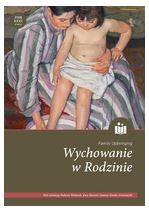Doświadczanie szczęścia i poczucie sensu życia a aktywność zawodowa rodziców dzieci z niepełnosprawnością intelektualną
Experiencing happiness and the sense of purpose in life vs professional activity of parents of children with intellectual disabilities
Author(s): Anna Porczyńska-CiszewskaSubject(s): Social Sciences, Family and social welfare
Published by: Zakład Historii Edukacji w Instytucie Pedagogiki Uniwersytetu Wrocławskiego
Keywords: children with intellectual disability; experiencing happiness; sense of purpose; special needs parenting, professional activity; raising children with disabilities
Summary/Abstract: Aim. The paper presents the author’s original research concerning the frequently ignored issue of mental well-being of parents raising children with intellectual disabilities, manifested in experiencing happiness and a sense of purpose in the context of their professional activity. It is commonly known that every child, especially one with a disability, needs loving, happy parents able to help them build self-esteem and faith in people, and give them hope and the awareness of the value of life. The aim of this work was to empirically verify the relationships between experiencing happiness, a sense of purpose, and professional activity connected with the education, and financial standing of parents of children with intellectual disabilities. The study involved 720 parents of children with intellectual disabilities. Methods and materials. The sense of purpose was measured with the Purpose in Life Test (PIL) by Crumbaugh and Maholick, and experiencing happiness was tested with the Scale of Experiencing Happiness (SEH). Results. The obtained results showed that full-time working parents of children with intellectual disabilities working had a significantly higher level of experienced happiness than parents who did odd jobs or were unemployed. Furthermore, the respondents’ experienced happiness and sense of purpose increased along with the education level and financial standing. The findings may be useful in preparing assistance and therapeutic programs for parents of children with intellectual disabilities and provide the basis for constructing interventions aimed at improving those families’ functioning and facilitating the active participation of parents and children with intellectual disabilities in social and educational life, thus counteracting social exclusion.
Journal: Wychowanie w Rodzinie
- Issue Year: XXXI/2024
- Issue No: 4
- Page Range: 221-240
- Page Count: 20
- Language: Polish

